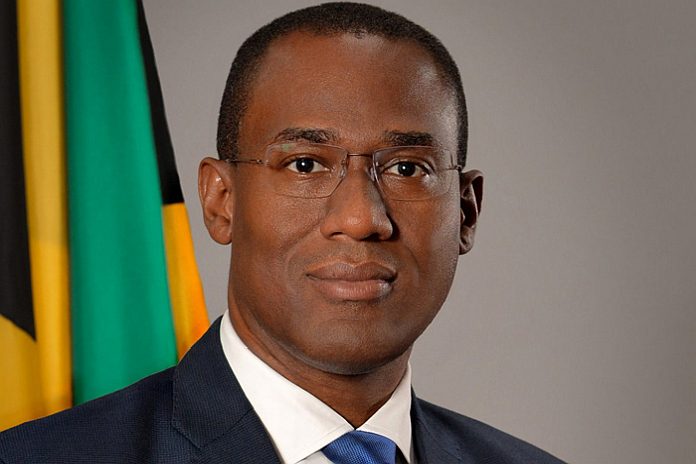By Latonya Linton
KINGSTON, Jamaica, (JIS) – Minister of finance and the public service, Dr Nigel Clarke, says preliminary numbers for the six months ending September 30 show that overall revenues were $8 billion or three per cent higher than budgeted in the first supplementary estimates.
The figures, however, were 18.8 percent lower than the corresponding six months of last year. Dr Clarke was tabling the second supplementary estimates of expenditure for 2020/21 during Tuesday’s, October 6 meeting of the house of representatives held at the Jamaica Conference Centre, downtown Kingston.
The second supplementary estimates proposes overall additional expenditure of $15.7 billion to generate a total expenditure budget of $853.7 billion. Dr Clarke informed that preliminary data show that the income and profits subcomponent was ahead of budget by eight per cent and behind last year by approximately five percent.
Corporate taxation and Pay As You Earn (PAYE) performed ahead of budget by 16 percent and eight percent, respectively. “In fact, PAYE for the first six months of this financial year was ahead of PAYE returns for the corresponding period of last year by three per cent. For the six months, preliminary figures indicate that Production and Consumption taxes were also up by seven per cent versus budget, but 14 per cent lower than last year,” Dr Clarke told the the house of representatives.
“In this category, Special Consumption Tax (SCT) was up significantly vis-à-vis budget, though General Consumption Tax (GCT) receipts on local activity were three per cent lower than budgeted and 16 percent less than the first six months of last year,” he added.
Also, revenue from International Trade taxes was lower than budgeted by three per cent and lower than last year by 32 percent over the comparable period.
Consistent with the fall in trade volumes, customs duty, stamp duty and GCT on imports were, respectively, seven percent, 28 percent and one percent lower than budgeted and 21 per cent, 40 percent and 27 percent lower than last year.
In addition, consistent with the dramatic reduction in passenger flight arrivals, travel tax receipts were down by $9.5 billion or 80 percent on last year.





